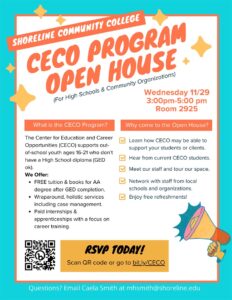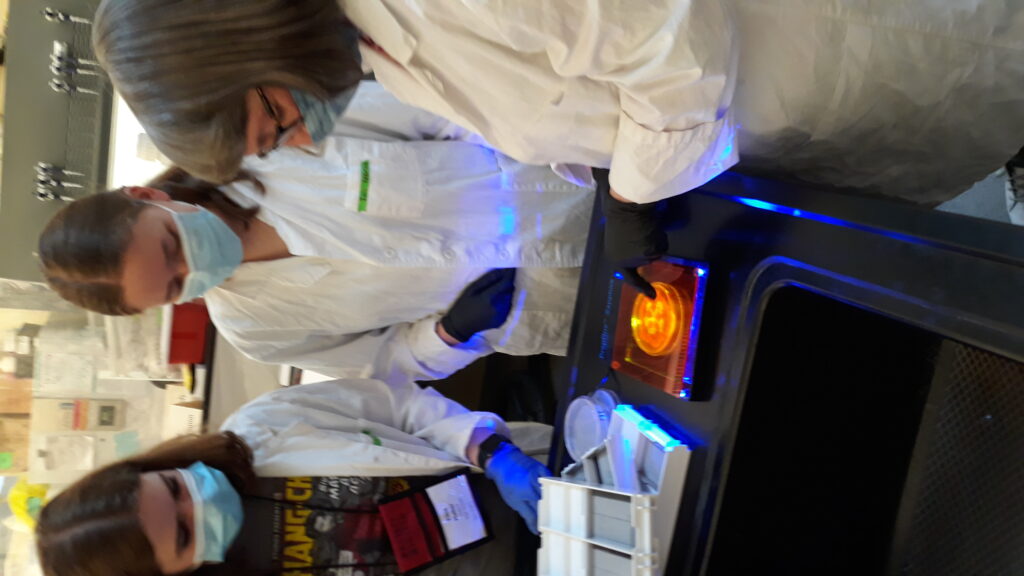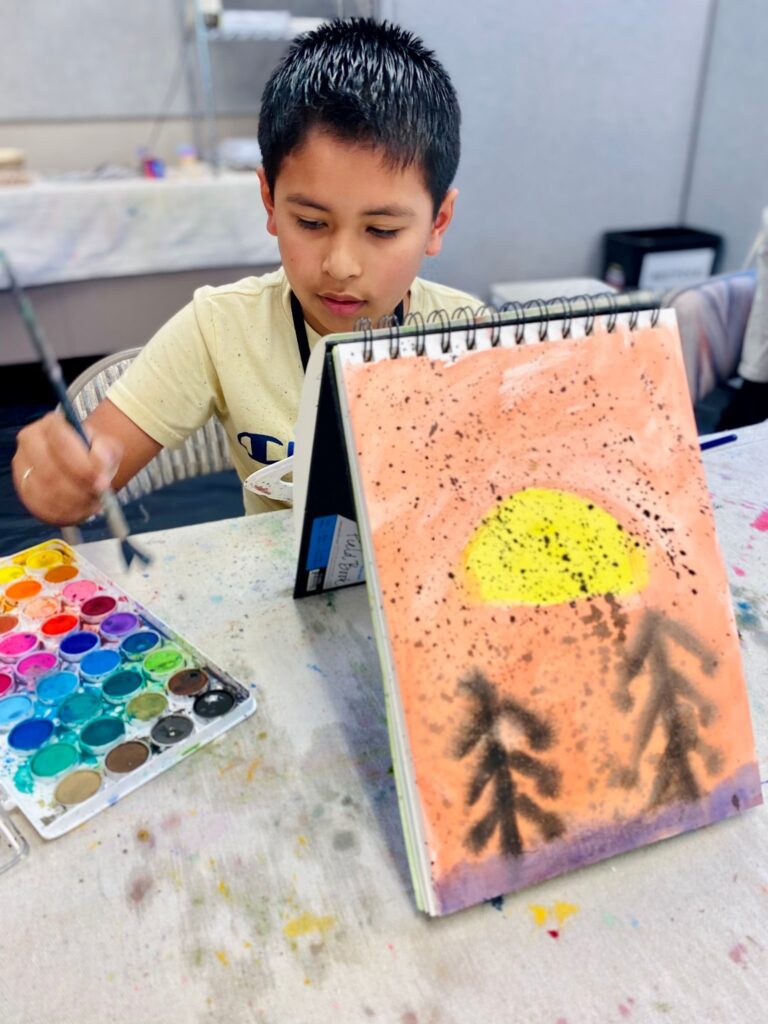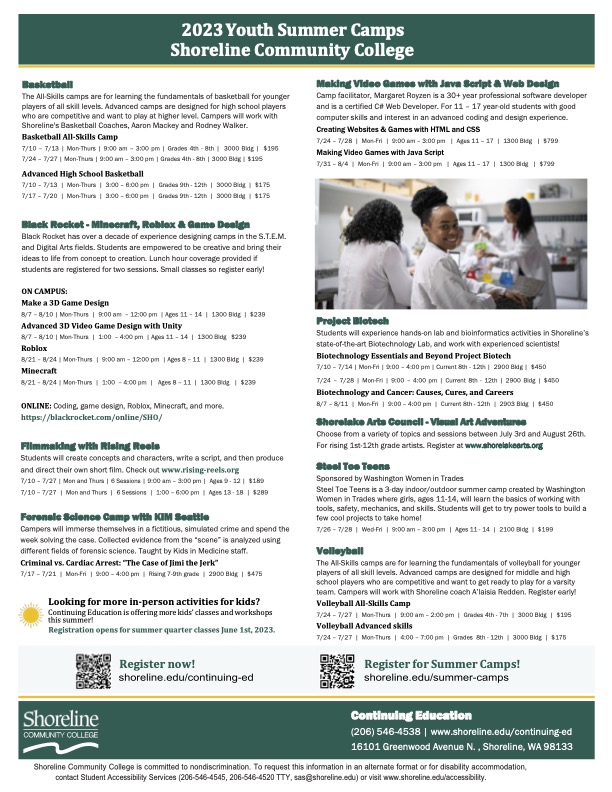Category: Community Education
May 6th, 2025 by Steve Marshal
Non-Apparent but Very Much There: Celebrating Mental Health Awareness Month with the Accessibility Advisory Committee
The month of May celebrates mental health and brings awareness of mental health disabilities, the most common of disabilities. The 2025 theme created by the National Alliance on Mental Illness (NAMI) is “In every story, there’s strength.” This theme highlights uniqueness in all people who experience mental health barriers, and the strength within all. This is something to remember: sometimes folx may need to take it hour by hour, or minute by minute, but we should do our best to learn to respect people no matter their ability.
Mental Health Myths and Realities
There are serious misconceptions about mental health diagnoses that create fear, leading people to assume that people with mental health diagnoses are dangerous or violent, largely due to lack of education and because mental illness is primarily non-apparent. According to Johns Hopkins Medicine, “An estimated 26% of Americans ages 18 and older — about 1 in 4 adults — suffers from a diagnosable mental disorder in a given year.” It is important to recognize that while mental health disorders such as Depression, Bipolar Disorder, Schizophrenia, Anxiety, Dissociative disorders, and other mental health disabilities can significantly affect those diagnosed and those around them, it does not automatically mean that those individuals are dangerous or that they cannot lead typical lives. In most cases, individuals who live with mental illness can succeed and flourish in higher education, have careers, and raise families, if they choose those paths in life.
Accommodating Mental Health Conditions
While mental illness may not be a readily apparent disability, the symptoms are very real and can significantly impact an individual’s ability to perform some daily functions, including work. The Job Accommodation Network has several suggestions for potential workplace accommodations in its About Mental Health Conditions sheet online. Some examples include the following:
- Flexible schedules
- Ability to work from home
- Use of a service animal
- Reduce Triggers/Activating Factors
To find out more about employee accommodations please contact Tricia Lovely, who is the contact for employee accommodations, at tlovely@shoreline.edu. To request an accommodation, please fill out an ADA Request Form and send it to scchr@shoreline.edu.
Similarly, many students with mental health disabilities may seek academic accommodations by contacting Student Accessibility Services. Some common accommodations for students with mental health barriers may include, but are not limited to, the following:
- Extended testing time
- Alternatives to activating materials
- Use of an assistance animal
- Disability-related absences
Self-Care
Maintaining mental well-being is a proactive and ongoing process. Here are some strategies to help navigate life’s stressors and strengthen your mental health:
1. Prioritize Physical Health
- Exercise: Even light physical activity, like a 30-minute walk, can boost your mood and reduce anxiety.
- Nutrition: Eat balanced meals, stay hydrated, and avoid excessive caffeine and sugar.
- Sleep: Aim for 7–9 hours of quality sleep each night to restore energy and improve mental clarity.
2. Connect with Others
- Build relationships: Maintain and nurture friendships; don’t hesitate to reach out and connect with new people.
- Spend quality time: Meaningful interactions with loved ones can combat loneliness and increase feelings of support.
3. Practice Mindfulness and Relaxation
- Mindfulness: Techniques like meditation, deep breathing, or yoga can help you stay grounded in the present moment.
- Relaxation: Explore methods like guided imagery or progressive muscle relaxation to manage stress.
- Hobbies: Engage in creative or leisure activities that bring joy and a sense of purpose.
4. Set Boundaries and Manage Stress
- Say no when needed: Avoid overcommitting to preserve your energy.
- Delegate: Share responsibilities to lighten your mental load when possible.
- Take breaks: Step away regularly to prevent burnout.
- Limit screen time: Excessive use of social media can worsen anxiety or depression.
- Spend time in nature: Outdoor time has been shown to reduce stress and enhance mood.
Resources
If you are experiencing mental health distress, we encourage you to seek professional help. On campus, students can visit the Counseling Center in the FOSS building, Room 5251, or call 206-546-4594 to meet with a counselor or get help locating a mental health professional outside of the college. Employees are encouraged to contact the Employee Assistance Program (EAP) at 877-313-4455 or contact your general health practitioner.
For 24/7 emergency counseling, referral, or assistance please call:
- National Suicide Prevention Lifeline | 800-273-8255
- King County: Crisis Connections (Crisis Line), 866-427-4747
- Snohomish County: Volunteers of America Care Crisis Response Services (Crisis Line), 800-584-3578
- Lifeline Crisis Chat: Go to the following link: suicidepreventionlifeline.org/chat/
- Crisis Text Line: Text 741741
- 911 (for immediate health-related emergency)
Additional mental health resources:
How are we doing?
Please submit feedback about the information that the Accessibility Advisory Committee shares, or any questions that you have, to the Chair of the Committee, Miranda Levy, via email at mlevy@shoreline.edu so that the committee can review together and serve the campus community better.
Posted in Community Education, DEI
April 22nd, 2025 by Steve Marshal
This month the Accessibility Advisory Committee invites our campus community to broaden their understanding of autism spectrum disorder (ASD) to help create an accepting and inclusive environment for individuals with autism. We also encourage everyone to reflect on how we, as a community, can address the challenges that the autism community faces.
As indicated in the name, autism exists on a spectrum, meaning that each person who is on this spectrum has unique challenges and strengths. When autism intersects with other identities, additional challenges and barriers can arise. Autism manifests uniquely across different gender identities, leading to disparities in diagnosis, support, and societal understanding.
Societal expectations shape how autistic individuals express unique traits. Women and gender-diverse individuals with autism commonly report engaging in intrapersonal strategies such as masking behaviors, mimicking socially accepted gender norms, and adopting social scripts to navigate social interactions. This process, known as camouflaging (commonly known as masking), helps the individual blend in but can also delay recognition and support of their autism. While this strategy may help individuals navigate social situations, it often comes at a significant psychological cost. Studies link camouflaging to increased mental health challenges, including heightened anxiety, depression, and suicidality. Because traditional diagnostic assessments rely heavily on observable behaviors, they may fail to identify individuals who have learned to mask their autistic traits effectively. Furthermore, co-occurring conditions such as anxiety, depression, or other neurodevelopmental disorders can obscure an autism diagnosis, leading to misidentification and inadequate support.
The intersectionality of autism and race can create additional barriers to success. Most current autism research is gathered from white, economically advantaged communities. This means that when people of color present differently, early signs of autism may not be recognized until much later in life. Statistics show that white children are 19% more likely than Black children and 65% more likely than Hispanic children to be diagnosed at an early age.
Late diagnosis of autism creates barriers that impact personal acceptance and robs individuals of timely interventions, tailored educational approaches, and access to support services—all of which contribute to better outcomes for autistic individuals.
How to Support an Autistic Peers
Here are some ways to be supportive:
- Practice Clear Communication
- Be Mindful of Sensory Sensitivities
- Respect Different Social Styles
- Provide Flexible Work Arrangements
- Foster an Inclusive Environment
Inclusion benefits everyone and when autistic individuals feel supported, they can fully utilize their strengths, such as attention to detail, creativity, and problem-solving skills. A culture of awareness and acceptance leads to better collaboration and a more positive environment for all. Awareness is the first step toward acceptance and meaningful inclusion, helping to build a culture where everyone can thrive.
Want to learn more? Visit the websites of these organizations for more information about autism:
Posted in Community Education
March 7th, 2025 by Steve Marshal
March 10-14th is Civics Education Week.
Are you interested in learning more about civics? Take a look at these great resources for civics education:
- Online games from iCivics give learners a fun, interactive way to engage with civics content.
- Civics for All of US delivers thought-provoking educational programs and resources from the National Archives.
Posted in Community Education, Events
February 21st, 2025 by Steve Marshal
Join us for the second of two lectures presented by Ana Celis:
Natural & Cultural Heritage of the Yucatan Peninsula
In a highly interconnected world, it is important to consider the history and values of the local communities where we travel. This lecture will present a grassroots approach to preserving the world’s largest underwater cave systems and its connections with the natural and cultural heritage of the Yucatán Península (México).
- DATE: Wednesday, 3/5/2025
- TIME: 5:30 – 6:30pm
- PLACE: PUB Quiet Dining Room
Click here to RSVP.
About Ana K. Celis
Ana Celis holds a bachelor’s degree in Archaeology from Universidad Veracruzana, and a master’s degree in Coastal Oceanography from Universidad Autónoma de Baja California, México.
As a fellow at the Smithsonian in Panama, Ana developed a strong sense of commitment to create positive social impacts through her profession. She has worked for nonprofits, government agencies and the private sector in the areas of subterranean ecosystem conservation, cave archaeology and groundwater quality monitoring. Ana currently serves as director and founder of Karst Lab México. She provides consultancy services for ecosystems conservation and sustainable development in indigenous and urban-sprawl communities. She collaborates with Western Kentucky University and Mammoth Cave National Park to strengthen U.S.-México partnerships in Cave and Karst Science.
Ana is also a Professor at Universidad del Caribe, working to reduce the gender gap in STEM for marine science.
As a Humphrey Fellow at UC Davis for the 2024-25 academic year, Ana is broadening her network and knowledge with U.S. partners about coastal and groundwater resource management, and best practices to reduce gender gaps in science.
Posted in Community Education, Events, Free
February 21st, 2025 by Steve Marshal
Join us for the first of two lectures presented by Ana Celis:
Environmental Studies of Caves & Karst Terrains
Subterranean ecosystems, such as caves, cover only 19% of the terrestrial surface and therefore their ecological role is overlooked. This lecture will highlight the environmental and scientific values of cave and karst ecosystems and their relevance in global conservation discussions
- DATE: Monday, 3/3/2025
- TIME: 1:30 – 2:25pm
- PLACE: PUB Quiet Dining Room
About Ana K. Celis
Ana Celis holds a bachelor’s degree in Archaeology from Universidad Veracruzana, and a master’s degree in Coastal Oceanography from Universidad Autónoma de Baja California, México.
As a fellow at the Smithsonian in Panama, Ana developed a strong sense of commitment to create positive social impacts through her profession. She has worked for nonprofits, government agencies and the private sector in the areas of subterranean ecosystem conservation, cave archaeology and groundwater quality monitoring. Ana currently serves as director and founder of Karst Lab México. She provides consultancy services for ecosystems conservation and sustainable development in indigenous and urban-sprawl communities. She collaborates with Western Kentucky University and Mammoth Cave National Park to strengthen U.S.-México partnerships in Cave and Karst Science.
Ana is also a Professor at Universidad del Caribe, working to reduce the gender gap in STEM for marine science.
As a Humphrey Fellow at UC Davis for the 2024-25 academic year, Ana is broadening her network and knowledge with U.S. partners about coastal and groundwater resource management, and best practices to reduce gender gaps in science.
Posted in Community Education, Events, Free
November 29th, 2023 by Cat Chiappa
Come celebrate our fall mural artists and see their incredible work!
- Date: 12/7/23
- Time: 12-2:30pm
- Location: 9000 PUB Room 9201 & CECO 2900 Building

Posted in Announcements, Arts & Entertainment, Community Education
November 14th, 2023 by Cat Chiappa
Join the CECO Program for our Fall Open House event! This will be a great opportunity to learn more about the CECO Program, meet some of our current students and staff, see our space, and hear about exciting upcoming projects!
Date: 11/29/23
Time: 3:00-5:00pm
Location: Room 2925

While we’re welcoming contacts from high schools and community organizations for this event we would also love to have any interested SCC employees join. Please RSVP at bit.ly/CECO and email mhsmith@shoreline.edu with any questions!
Posted in Community Education, Courses and Classes, Events
October 26th, 2023 by Cat Chiappa
Our Chinese scholar, Fei-Ke will unlock the logic puzzle that forms Chinese characters, and illustrate their unique shapes and composition. You will learn the art of calligraphy and how to “draw” these characters with success. This workshop is good for all ages!
Date: Wednesday 11/15/23
Time: 1:30-3:30pm
Location: PUB Quiet Dining Room 9208

Posted in Community Education, DEI
March 6th, 2023 by pio@shoreline.edu
YOUTH SUMMER CAMPS ON CAMPUS
Looking for in-person camps and activities for your kids this summer? SCC Continuing Education is offering kids’ classes and workshops! Topic areas include Project Biotech, KIM Seattle (with Kids in Medicine) Forensics Camp, film making, computer programming/video game design, Shorelake Arts Council Arts Adventures, Volleyball and Basketball, Steel Toe Teens Camp (with Women in Trades) and more! Details and register here www.shoreline.edu/summer-camps and Shoreline Community College (campusce.net)





Posted in Announcements, Community Education, Continuing Education, Courses and Classes, Events
February 28th, 2023 by pio@shoreline.edu
In this session you will see how the seasons, with emphasis on equinoxes (March and September) and solstices (June and December), provide us with fascinating but realistic views of our place on our planet and our planet’s place in our solar system.
3/1 – 3/22 | 2:00 – 4:00 pm | Wednesday (4) | Fee: $69 | Linda Khandro | Location: 1500 Building, Room 1522, Shoreline CC Campus. Parking pass will be provided.
https://www.campusce.net/shoreline/course/course.aspx?catId=5

Great Ocean Road at night milky way view
Posted in Announcements, Community Education, Courses and Classes








